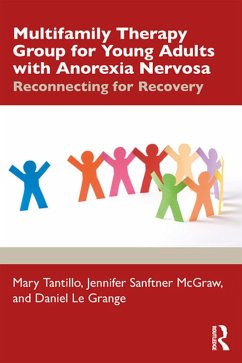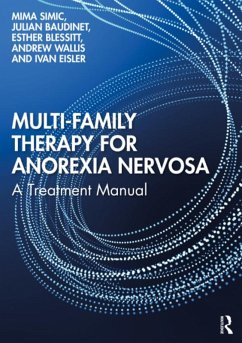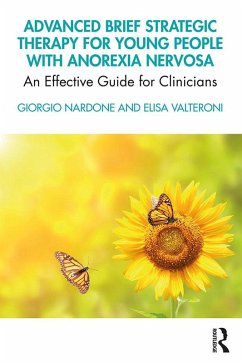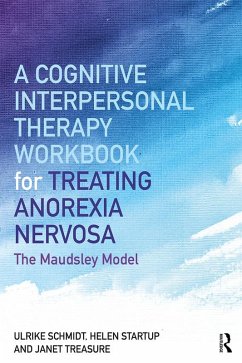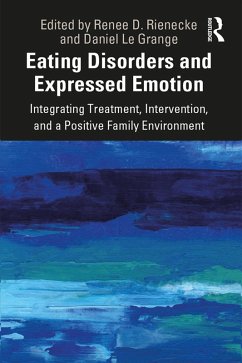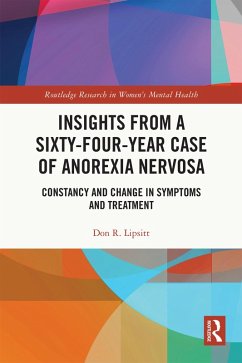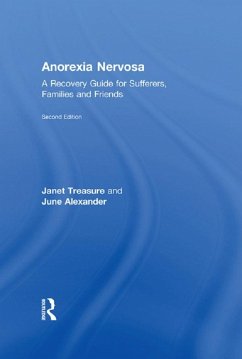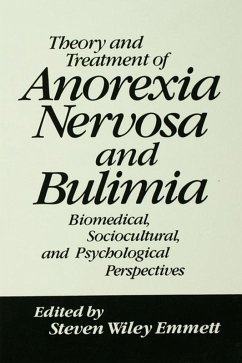
Multifamily Therapy Group for Young Adults with Anorexia Nervosa (eBook, PDF)
Reconnecting for Recovery
Versandkostenfrei!
Sofort per Download lieferbar
33,95 €
inkl. MwSt.
Weitere Ausgaben:

PAYBACK Punkte
17 °P sammeln!
Multifamily Therapy Group for Young Adults with Anorexia Nervosa describes a new and innovative family-centered outpatient Multifamily Therapy Group (MFTG) approach called Reconnecting for Recovery (R4R) for young adults with anorexia nervosa that is based on a relational reframing of eating disorders.Developed in concert with young adults and their families and informed by clinical observations, theory, and research, R4R is designed to help young adults and family members learn the emotional and relational skills required to avoid or repair relationship ruptures for continued collaboration in...
Multifamily Therapy Group for Young Adults with Anorexia Nervosa describes a new and innovative family-centered outpatient Multifamily Therapy Group (MFTG) approach called Reconnecting for Recovery (R4R) for young adults with anorexia nervosa that is based on a relational reframing of eating disorders.
Developed in concert with young adults and their families and informed by clinical observations, theory, and research, R4R is designed to help young adults and family members learn the emotional and relational skills required to avoid or repair relationship ruptures for continued collaboration in recovery. The book begins with an overview of anorexia nervosa, MFTG treatment approaches, and the development of R4R and moves into a session by session review of R4R including session goals, exercises and handouts. Protocols, case vignettes, and other materials help translate the theory and research underlying this multifamily therapy group model into practice.
This treatment manual provides readers with explicit guidance in how to develop and conduct an outpatient R4R MFTG and a deeper understanding of the nature, purposes, and processes that characterize one.
Developed in concert with young adults and their families and informed by clinical observations, theory, and research, R4R is designed to help young adults and family members learn the emotional and relational skills required to avoid or repair relationship ruptures for continued collaboration in recovery. The book begins with an overview of anorexia nervosa, MFTG treatment approaches, and the development of R4R and moves into a session by session review of R4R including session goals, exercises and handouts. Protocols, case vignettes, and other materials help translate the theory and research underlying this multifamily therapy group model into practice.
This treatment manual provides readers with explicit guidance in how to develop and conduct an outpatient R4R MFTG and a deeper understanding of the nature, purposes, and processes that characterize one.
Dieser Download kann aus rechtlichen Gründen nur mit Rechnungsadresse in A, B, BG, CY, CZ, D, DK, EW, E, FIN, F, GR, HR, H, IRL, I, LT, L, LR, M, NL, PL, P, R, S, SLO, SK ausgeliefert werden.




